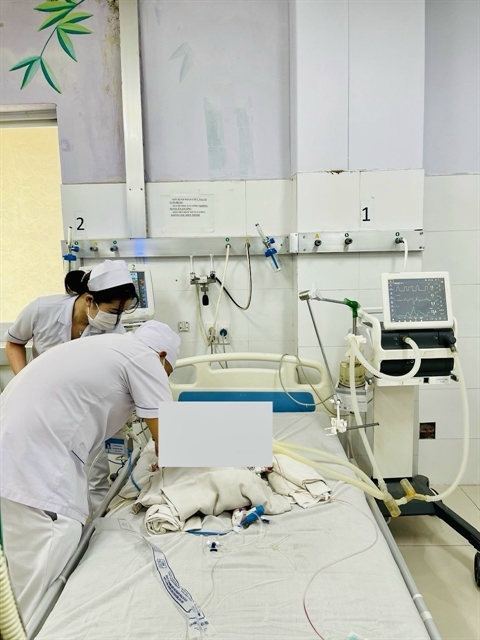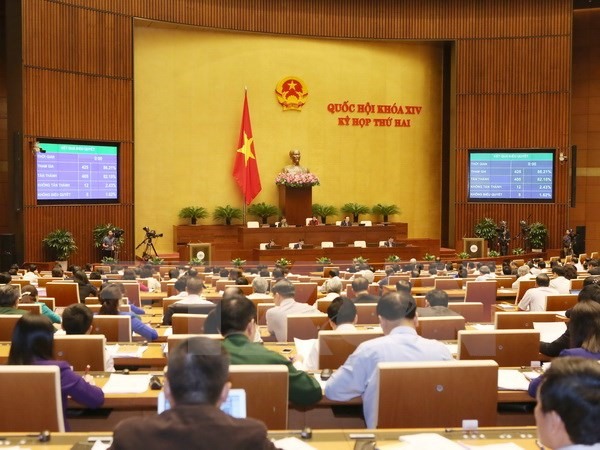 Politics & Laws
Politics & Laws

The 14th National Assembly yesterday passed a resolution on piloting the issuance of e-visas for foreigners with 91.08 per cent approving.
 |
| The 14th National Assembly yesterday passed a resolution on piloting the issuance of e-visas for foreigners with 91.08 per cent approving. — VNA/VNS Photo Phương Hoa |
HÀ NỘI – The 14th National Assembly yesterday passed a resolution on piloting the issuance of e-visas for foreigners with 91.08 per cent approving.
The e-visa pilot scheme will last for two years, starting from February 1, 2017. The results will be reported at the last NA session in 2018. E-visas will be issued by the immigration authority via digital transactions for foreigners wanting to enter Việt Nam.
It can be used once and is valid for no longer than 30 days. In order to be eligible for the visa, one must be a citizen of a country that has diplomatic relations with Việt Nam and poses no threat to the nation’s defence-security and social order.
The criteria will be aligned with Việt Nam’s socio-economic and diplomatic policies at the time of issuance. The applicant also must not be included in a list of subjects yet to be allowed to enter Việt Nam as regulated on Article 21 of the law on entry, exit, transit and residence of expatriates in Việt Nam.
The government was tasked with establishing a list of countries eligible for Vietnamese e-visa registration. The same day, the NA also adopted the law on amending and supplementing the Investment Law’s Article 6 and Appendix 4 on the list of conditional businesses. A total of 83.16 per cent of deputies approved the change. The law is set to take effect on January 1, 2017, excepting for regulations on the trade of disguise devices and software to record image, sound and navigation as well as on auto production, assembly and import, which will come into effect on July 1, 2017.
Later the same day, the deputies discussed the draft law on support for small and medium-sized enterprises (SMEs).
Many deputies expressed agreement for the building and issuance of the law, which they said would help to set up comprehensive policies and programmes to support SMEs in line with socio-economic development goals and orientation of the country. It would encourage firms to renovate the growth model and improve competitiveness, while contributing to generating jobs, reducing poverty and ensuring social security, they said.
Deputy Phùng Thị Thường from the northern province of Vĩnh Phúc said the law was needed to promote potential SMEs which play an important role in economic development. The law is expected to help enable one million firms to operate efficiently by 2020.
Deputy Đỗ Văn Bình from Hải Phòng City said that the issuance of the law was important in helping carry out policies of support for SMEs because current support for SMEs still faced incomplete or incomprehensive policies and legal documents.
However, Bình said the support for SMEs needed to ensure equality among different kinds of businesses in getting access to sources of support.
Some deputies proposed the compiling board to have clear criteria to define SMEs with priority given to the criteria based on the total amount of capital and the total number of employees of businesses. — VNS




.jpg)




